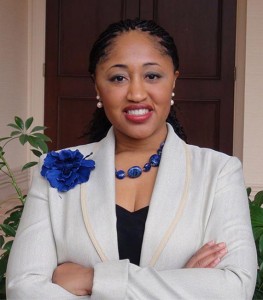 Community Matters is a biweekly opinion column. The views expressed are solely the author’s.
Community Matters is a biweekly opinion column. The views expressed are solely the author’s.
John Lewis was a 23-year-old leader of the Student Nonviolent Coordinating Committee when he delivered his speech at the March on Washington in 1963. In his speech he criticized political leadership, highlighted the plight of citizens victimized by police brutality and called for changes to voting laws.
“To those who have said, ‘Be patient and wait,’ we must say that we cannot be patient. We do not want our freedom gradually but we want to be free now,” Lewis said. Today, our youth are leading the way with that same urgency.
Lewis exhibited leadership skills at a young age and was a mentee of Dr. Martin Luther King, Jr. In 1965 he led the march across the Edmund Pettus bridge (hopefully soon to be the John Lewis bridge) and would be beaten so badly that the physical scars lasted his whole life. “Bloody Sunday” became a turning point in the civil rights movement, proving to leave emotional scars on our nation for decades.
Lewis served in several more community organizing roles, in the Carter administration, on the Atlanta City Council, and was elected to Congress in 1986. He will undoubtedly be remembered as one of the most instrumental leaders in the 20th and 21st centuries.
I am serving as an advisor to a campaign simulation program run by Running Start to give female high school students access to political training. Anyone who has spoken with a student these days knows how bright and motivated they are. Many of these students are ready to take the reins of leadership whether it’s handed to them or not. We have a role as community leaders to help prepare them and facilitate their learning outside of the classroom. We should:
Encourage creativity and confidence. John Lewis’s original speech was toned down but he had enough confidence to include his true thoughts. Our youth are often unhindered by our life experiences of failure. Encourage them to speak their minds with confidence.
Place student representatives and young professionals in leadership roles. Arlington organizations should consider how we can integrate youth into leadership positions. We should be prepared to teach them critical skills about the organization and encourage them to develop their own leadership styles.
Support youth-led organizations. We should also provide a space for more youth-led groups to address community concerns. Current organizations could create separate affiliate organizations or junior boards and provide them the resources to thrive by leading their own initiatives and giving them an equal seat and vote in larger coalitions.
Make the necessary organizational changes. Meeting times and traditional formats may need to be adjusted to be more inclusive of people with all backgrounds. I recently facilitated a session for new members of the Virginia affiliate of a national organization. A millennial was very candid about ways to accommodate younger members including changing meeting times and locations, adding virtual engagement, striving for authentic recruitment, and increasing social media presence. It is hard for us to complain about the lack of youth involvement when we are not listening to their concerns.
Ensure succession plans are in place. We have several community leaders who bring a great amount of expertise to our organizations. We should not assume those leaders will be here forever, and we should proactively create plans for the next generation.
Have a positive attitude. Younger leaders have so much to bring to the table. Frankly, many of us come off as ornery, unwilling to pass on knowledge, and unwelcoming. A positive attitude about their engagement and the future of the organization could go a long way.
History will judge that young man who stepped up to the podium in 1963 kindly. His tenacity, spirit, fortitude and willingness to get in “good trouble” have made us a much better nation. In these similarly changing times, we must find, support and encourage today’s young leaders to leave their own transformational legacy.
Krysta Jones has lived in Arlington since 2004 and is active in local politics and civic life. This column is in no way associated with or represents any person, government, organization or body — except Krysta herself.


